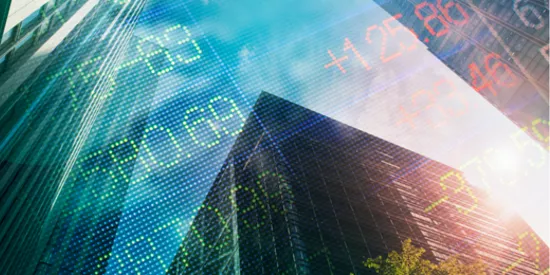
Why the ‘S’ in ESG is starting to matter (again)
The modern Environmental, Social and Governance (ESG) movement began few decades ago with socially responsible investing, as asset managers reduced exposure to questionable areas, such as tobacco or alcohol.
But the focus quickly moved on to ‘governance’, where data points such as board composition, executive pay and diversity can be ‘easily’ measured; and then to ‘environment’, which has dominated in recent years, generating huge investment, heavy regulation and – thankfully – considerable progress.
Following the COVID-19 crisis, however, those rather neglected ‘social’ factors are moving back up the agenda: the pandemic triggered a plunge in labour force participation rates (‘the great resignation’); exposed the fragility of corporate supply chains; and, as Yannick Ouaknine, Head of Sustainability Research at Societe Generale, puts it:
COVID-19 called attention to the ‘S’ in ESG. It woke people up to the fact that there is something strong here.
Precisely what is hard to define, though. Corporations are grappling with what they should do and disclose; investors need to understand what is meaningful and can be properly measured; regulators are trying to put balanced frameworks in place; while NGOs, academics and others want their say as well.
This complexity led Mr Ouaknine and his team to try to set out the issues as pragmatically, transparently and as ‘financially relevant’ as possible. Moreover, they were determined to portray social factors not only as risks to avoid but also as opportunities for companies and investors to improve their performance. To date, their research has tackled three important areas.
From social to economic performance
The first one deals with the major regulatory guidelines on working conditions - such as those from the United Nations and the International Labour Organization – and the social policies and disclosure of companies worldwide. While lots of regulation already exists and new frameworks are coming, such as the European Union’s social taxonomy, they also found considerable gaps.
Companies, whether sliced by sector, size or country, had widely varying levels of disclosure, much of it vague rather than quantitative or systematic. “In terms of disclosure, we found that availability of data did not equate to quality,” says Mr Ouaknine. Only a third of large companies, for instance, have a policy on freedom of association – the basis for enabling unionization and protecting workers’ rights.
This matter since the pandemic has highlighted the importance of employees to corporate success. The second topic therefore focuses on employee wellbeing. Younger generations are challenging traditional definitions of happiness at work that emphasise pay and promotions. They expect not only flexibility and attention paid to their personal well-being; they also want their employer to share their ethics and values, and increasingly, to speak out on social and political issues. This is particularly the case in the US, where CEOs are finding they must take a stand on topics such as ‘Black Lives Matter’ or abortion for instance that were previously beyond their sphere.
Most companies fall short here. Old-fashioned policies about health & safety, backed by fuzzy sentiments on ‘culture’ no longer cut it with the best young graduates, who regard high pay and excellent working conditions as a given and have their pick of jobs globally. Companies must treat staff more as clients and less like workers, argues Mr Ouaknine, and elevate the importance of their Human Resources function. If they do this strategically, they can win the emerging arms race for talent and become a more attractive investment as well.
Supply chain: a key link in the social sustainability chain
The third area of focus is supply chains. While child labour, exploitation and deforestation have been problems for a long time, the last couple of years have shown us how vulnerable many global supply chains had become. As companies now rebuild these, switching from ‘just in time’ to ‘just in case’, they also have an opportunity to raise standards and adopt more meaningful disclosures: for example, how reliant they are on specific materials such as rare metals? Local communities can play a role here alongside regulators in setting standards. Meanwhile, consumers will have to learn to pay a premium for responsibly sourced goods.
For corporations, it is clear that many of the controversies they run into, from misguided product launches to pollution, industrial accidents, corruption or fraud, are rooted in social factors – in their people doing the wrong things. And once a company’s reputation is compromised, it can rapidly lose its social license to operate. On the other hand, a controversy well-handled, or avoided, can build and strengthen a brand.
Investors, meanwhile, need to do a better job of systematically analysing social factors, since these can expose portfolios to sudden large losses and underperformance. In fact, taking such metrics into account is becoming part of their fiduciary duty. On the positive side, as disclosure improves, asset managers can design new products around the social theme and make it a meaningful part of their entire investment process.
To get insights and new inspirations on how to deliver sustainability ambitions, you can join Societe Generale’s Positive Impact Week, its flagship global client event on November 28-29-30th.





